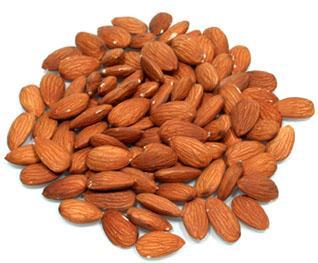
Too Many Almonds: The Good, The Bad, and The Ugly
- Oct 30, 2025
Love a good binge? Consider almonds your new frenemy. Yes, they are nutritious and packed with fiber and healthy fats. Still, like that toxic ex you cannot keep away, they can cause trouble when you consume too many. Think digestive discomfort, weight gain, and even - hold onto your yoga mats - cyanide poisoning.
First comes the fiber shock - a whopping 3.5 grams per 1-ounce serving of almonds, which your digestive system may struggle to handle in large quantities. The results aren't pretty if your body isn't used to receiving that much fiber at once.
Then there's the calorie critique. Despite being "healthy" fats, the density of calories in almonds means consistent overconsumption can lead to weight gain. A 1-ounce serving containing roughly 23 nuts has 166 calories and 14 grams of fatty goodness. It's been found that long-term almond consumption can negatively impact glucose metabolism, particularly in those with excess weight, obesity, or prediabetes.
The antinutrient aspect is another bugbear. These naturally occurring compounds can be found in many plant-based foods, hampering the absorption of key nutrients while slowing digestion. For those of you who think you're soaking the problem away, alas, the research isn't clear on how effective this method truly is.
Old almonds also love to throw oxalates into the mix - compounds recognized for their contribution to the formation of kidney stones. Fun.
And lastly, the sweet-but-deadly aspect of almonds: cyanide. While the sweet almonds from your grocery store contain significantly less cyanide than their bitter relatives, there have been incidents of accidental bitter almond ingestion, leading to cyanide poisoning.
Before you swear off this crunchy delight, remember not everyone will experience adverse effects. Those with a tree nut allergy, though, you may want to steer clear. Symptoms of an allergic reaction typically appear shortly after consumption.
If you're wondering whether almonds are safe for you, it's always best to check with your healthcare provider or registered dietitian, or simply consume in moderation. Or, in the words of a sage from our age, remember: 'Less is more' - except when it comes to squats, of course.






